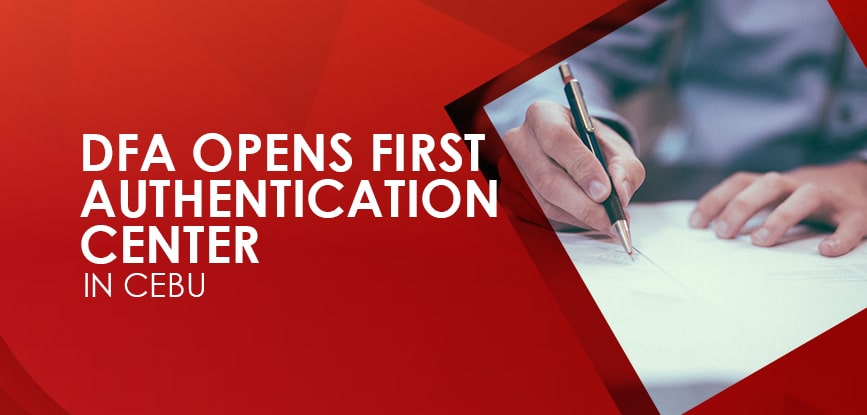
DFA Opens First Authentication Center In Cebu
The Department of Foreign Affairs (DFA) officially opened its first authentication service center in Visayas. The new DFA Cebu Consular Office in Mandaue, Cebu is expected to reduce the burden faced by the residents of the Visayas region in obtaining travel documents.
Foreign Affairs Secretary Teodoro “Teddyboy” Locsin Jr. led the center’s opening ceremony on Tuesday, September 10.
During his message at the inauguration, he talked about the significance of the new center to the residents of the region, who previously had to travel to Manila to secure and authenticate travel documents from the DFA — majority of which were Overseas Filipino Workers (OFWs) residing in Visayas.
“Their work or livelihood abroad rests on a piece of paper that needs authentication. For too long, they have spent considerable time, money, and effort to avail of simple government services,” Secretary Locsin said.
Last June, DFA’s first authentication center in Mindanao at the Davao Consular Office was opened to the public, which marks the current launch in Cebu the start of a complete nationwide roll-out of DFA’s authentication services.
“This is just the beginning. Under my watch, I [want] to open more authentication centers and consular offices throughout Mindanao and Visayas in order to bring frontline services closer to the people,” Secretary Locsin said.
“There are many other services that the DFA renders to the public that [if] you want it here, you will have it here, as fast as possible,” he added.
Also in attendance at the event was Presidential Adviser to the Visayas Sector Michael Dino. He praised Secretary Locsin for the agency’s swift efforts towards a “leap forward in the document authentication process.”
Presidential Adviser Michael Dino explained that the previous three-step process for authentication was costly and time-consuming for the people.
In response to this, Secretary Locsin acknowledged the success of the Instrument of Accession to the Apostille Convention, signed by President Rodrigo Duterte last year.
“The authentication process for public documents has been cut by half,” he said.
“If the authenticated document is to be used in a foreign country, which is among the 117 members of the Apostille Convention, there is no longer any need for authenticated documents to undergo another authentication in their embassy or consulate here in the Philippines. This means less aggravation and less cost for the millions of Filipinos who rely on the cross-border exchange of public documents for work, study, and business,” explained Secretary Locsin.
The newly opened Consular Office in Cebu is currently DFA‘s 8th center for authentication services in the Philippines and according to the agency, they intend to open more across the country to reach more Filipinos in the coming months.
